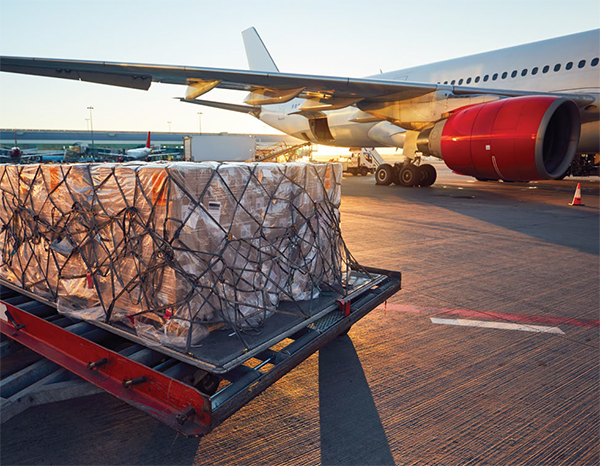 As we cross the halfway mark of 2025, Turkey continues to strengthen its position as a key player in the global logistics landscape. With its unique geographical location bridging Europe, Asia, and the Middle East, Turkey offers a critical transit hub for multimodal logistics and freight forwarding operations.
As we cross the halfway mark of 2025, Turkey continues to strengthen its position as a key player in the global logistics landscape. With its unique geographical location bridging Europe, Asia, and the Middle East, Turkey offers a critical transit hub for multimodal logistics and freight forwarding operations.
A GATEWAY BETWEEN CONTINENTS
Turkey’s location remains one of its most valuable assets. Strategically positioned at the crossroads of major trade corridors—namely the Trans-European Transport Network (TEN-T), the Middle Corridor (linking China to Europe via Central Asia), and the Mediterranean Basin—Turkey serves as a natural logistics gateway for east-west and north-south trade flows.
MARKET EXPANSION TRENDS IN 2025
In 2025, Turkey’s logistics market is showing strong growth in several key regions:
The Marmara Region
Particularly Istanbul and Kocaeli(Korfez), remains the logistics heartland, supported by advanced infrastructure, customs zones, and port connectivity (Ambarlı, Kumport, and DP World Yarımca, Yilport).
The Aegean Region
Particularly around İzmir, is experiencing rapid development, driven by investments in cold chain logistics, e-commerce fulfillment centers, and intermodal terminals.
The Southeastern Corridor
encompassing Iskenderun and Mersin, is expanding into a vital export hub for the Middle East, with notable growth in land transport and warehousing services. Mersin and İskenderun ports also continue to play a crucial role in handling transit cargo traffic originating from CIS countries.
 This regional diversification demonstrates that logistics demand in Turkey is no longer concentrated in traditional centers alone, but is spreading to strategic inland and coastal cities.
This regional diversification demonstrates that logistics demand in Turkey is no longer concentrated in traditional centers alone, but is spreading to strategic inland and coastal cities.
CONTAINER SHIPPING PERFORMANCE: 2025 MID-YEAR OVERVIEW
The first half of 2025 saw a moderate rebound in container volumes at Turkish ports, following a volatile 2023–2024 period marked by regional tensions and global supply chain shifts. Notable developments include:
Increased transshipment volumes
Particularly in Mersin and İskenderun, due to rerouted vessels avoiding the Red Sea.
Steady recovery in imports
Particularly from Asia, following more stable pricing and lead times.
Export volumes are rising
Driven by Turkey’s strong performance in textiles, automotive spare parts, white goods manufacturing, agricultural products, food items, spare parts, and furniture.
Port operators have also invested in digitalization and terminal automation, increasing efficiency and reducing dwell times.
MERSIN PORT EXPANSION
The first phase of the Mersin Port expansion project has been completed. The project includes increasing overall port capacity, extending the quay, and enabling the port to handle ultra-large container vessels (ULCVs) with significantly higher capacity. Once the project is completed, Mersin Port’s annual container handling capacity will increase from 2.6 million TEUs to 3.6 million TEUs.
This development suggests a clear expectation of increased business volume in the near future, with projected growth in exports, imports, and transit cargo traffic.
ADVANTAGES FOR FREIGHT FORWARDERS IN TURKEY
Operating as a freight forwarder in Turkey presents several key advantages:
 Proximity to Emerging Markets
Proximity to Emerging Markets
Turkey offers access to over 1.5 billion consumers within a 4-hour flight radius, encompassing Europe, the CIS countries, North Africa, and the Gulf.
Robust Infrastructure
Modern seaports, expanding railway lines, free zones, and international airports offer scalable multimodal solutions.
Transit Customs Expertise
Freight forwarders with deep knowledge of Turkish customs regulations and bonded processes can deliver fast, compliant service—especially critical for high-value or time-sensitive cargo.
Agile Workforce & Entrepreneurial Ecosystem
Local firms demonstrate a high level of adaptability, often providing more flexible, client-oriented solutions than larger multinational counterparts.
Turkey’s logistics sector in 2025 remains resilient in the face of global challenges, yet it continues to evolve through strategic investments, regional diversification, and the adoption of new technologies. For freight forwarders, the opportunities are ripe. As the world shifts toward nearshoring, digital trade, and green corridors, Turkey’s unique position and growing capabilities make it an increasingly essential player in the supply chain ecosystem.